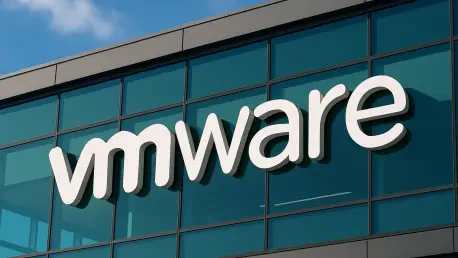The rapidly evolving terrain of software licensing has witnessed one of the most intriguing clashes between two industry giants—VMware and Siemens. As digital ecosystems increasingly hinge on software, disputes of this nature are not just about compliance but could set precedents affecting the global business landscape. At the heart of this conflict are two contrasting interpretations of software licensing agreements, with each side standing firm in its legal strategy.
High Stakes in Software Licensing Conflicts
In a world where digitalization shapes industries, software licensing has emerged as a critical battlefield. The legal dispute between VMware and Siemens highlights the severe implications that can arise from perceived software misuse and licensing disagreements. As technology advances and businesses rely more heavily on software solutions, what are the potential risks and consequences of such legal confrontations for companies worldwide?
Understanding the Modern Software Licensing Landscape
VMware’s shift from traditional perpetual licenses to a subscription-based model marks a significant change in the software industry. This change reflects a broader trend towards subscription models, influencing businesses to rethink how they access and utilize software. The growing preference for subscriptions offers benefits like regular updates and reduced upfront costs. However, it also places a new onus on companies to ensure exact compliance with detailed usage terms, underscoring the importance of maintaining robust software licensing practices to protect intellectual property and avert legal pitfalls.
Breaking Down the Dispute: Key Aspects Unveiled
The legal battle commenced when VMware alleged that Siemens and its U.S.-affiliated companies exceeded their licensed use of VMware’s software. Siemens’ defense revolves around their Master Software License Agreement, which they argue designates Munich, Germany, as the proper jurisdiction for disputes—a point VMware contests, aiming to resolve the case under U.S. copyright laws in Delaware. This disagreement extends to the heart of the debate: whether it is a copyright infringement issue or a contract dispute, with each side interpreting the accusations in a manner that aligns with its strategic interests.
Expert Perspectives: Navigating Legal Complexities
Legal experts underscore the complexity of enforcing software licenses across international lines, especially when different legal systems are involved. As software contracts become increasingly intricate, businesses must navigate jurisdictional challenges that accompany global operations. Insights from industry professionals suggest the necessity for explicit agreements and a thorough understanding of forum selection clauses, which can avoid costly legal entanglements. Case studies reflect that clear communication and well-drafted contracts are pivotal in mitigating risks associated with software usage disputes.
Practical Implications for Business Compliance
In light of this high-profile case, businesses are urged to conduct regular audits of their software usage to ensure compliance with licensing agreements. Employing frameworks or tools that provide real-time tracking of software deployment can empower companies to stay within legal bounds. Additionally, crafting lucid contracts with well-defined forum selection clauses can help sidestep potential jurisdictional issues, offering a preemptive solution to possible legal challenges. These proactive steps can aid companies in navigating the complex landscape of modern software licensing.
Moving Forward: Lessons and Future Considerations
As the VMware and Siemens legal saga draws attention to the intricacies of software licensing, businesses are reminded of the necessity for vigilance and preparedness. Looking forward, companies must embrace comprehensive strategies to maintain compliance and avoid similar disputes. In a world increasingly driven by digital solutions, the clarity and precision with which licensing agreements are managed may define not just corporate success but also the integrity of global business operations.









